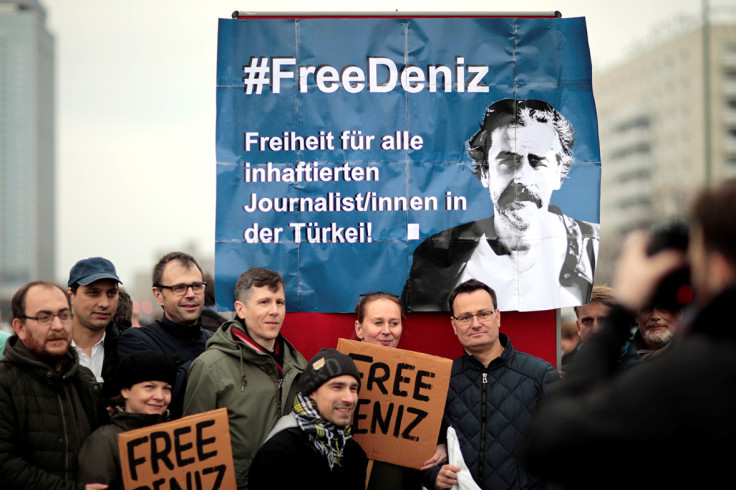Turkish foreign minister campaigns in Germany despite Erdogan 'Nazi' comments
President Recep Tayyip Erdogan strongly protested the cancellation of pro-referendum rallies in European countries.

Turkish foreign minister Mevlut Cavusoglu has visited Germany as part of a campaign supporting a constitutional referendum next month, despite Turkey's electoral law forbidding the election campaign outside the country.
Cavusoglu spoke about the referendum campaign in Hamburg on 7 March from the balcony of the Turkish consulate. The event was advertised with a poster featuring a campaign slogan – "our decision is yes" – and the ruling AKP party logo, German news agency DPA reported. Cavusoglu insisted he was merely addressing the Turkish community in Germany.
Article 94/A of the 2008 general election law forbids campaigning abroad or in foreign diplomatic missions. An OSCE report on the 2015 elections noted that, although '"legally prohibited", campaigning abroad was still carried out by the major political parties.
Cavusoglu also hinted at speaking about the referendum in the Netherlands, despite Dutch Prime Minister Mark Rutte opposing the idea.
Rutte explicitly addressed concerns that the constitutional changes proposed in the referendum would signal an authoritarian turn for the country, as political power would become centralised in the hands of the president. "We don't think it is desirable," he said, quoted by Associated Press.
Regardless of the law, Turkish President Recep Tayyip Erdogan lashed out at the European countries opposing the rallies. In a speech on 5 March, Erdogan went so far as likening the rally cancellations to "Nazi practices". In an attempt to clarify the president's statements, Cavusoglu told reporters: "We have not called anyone a Nazi. Our president made a comparison in reference to certain practices," but added: "The trend in Europe at the moment reminds us of pre-World War II Europe."
Germany did not appreciate the reference. Chancellor Angela Merkel said in parliament on 9 March the comparison trivialises the crimes against humanity committed by the Nazi regime: "We will not allow the victims of the Nazis to be trivialised," she said, quoted in the Associated Press. "These comparisons with the Nazis must stop."
The Chancellor is aware of the importance of holding good relations with Turkey, who is part of Nato and a partner in a controversial immigration deal blocking asylum seekers from reaching Europe. "We need to work hard on the German-Turkish relationship, but on the basis of our values and our ideas," she said.

Concerns for human rights in Turkey have increased since the government conducted a crackdown on the military, academia, the media and civil society following a failed coup in July last year.
Freedom of speech is particularly under threat in the country, which in 2016 imprisoned journalists than any other in the world. In February, Deniz Yucel, a German-Turkish reporter for the publication Die Welt, was arrested in Istanbul, accused of spying and supporting a terrorist organisation.
At Cavusoglu's Hamburg rally, counter-demonstrators could be spotted holding signs saying "Free Deniz". One of them, Die Zeit journalist Sebastian Kempkens, said he was attacked by rally-goers. The Hamburg Senate has asked the Turkish consulate "to help in clarifying the incident and to take a stance," writing in a statement that freedom of the press was a fundamental right, Deutsche Welle reported.
© Copyright IBTimes 2024. All rights reserved.






